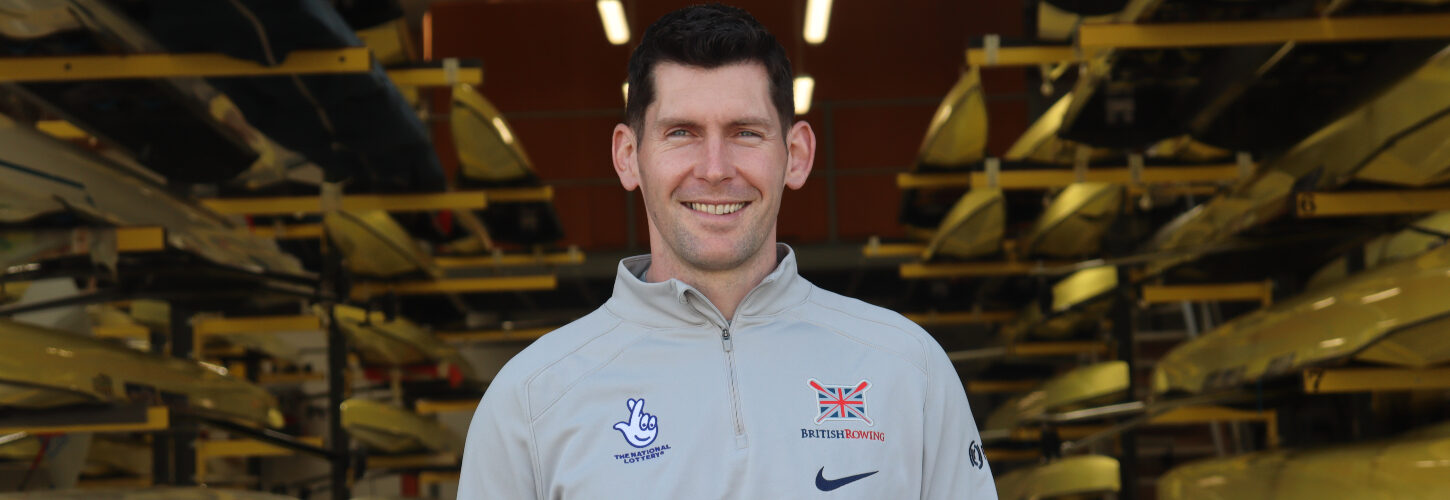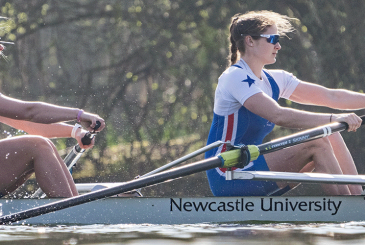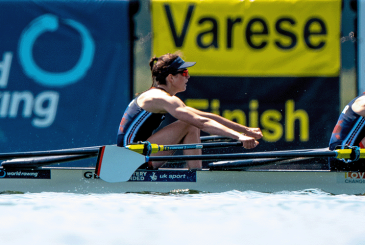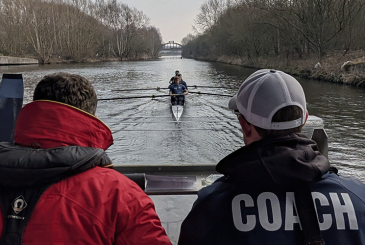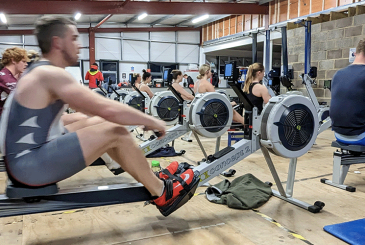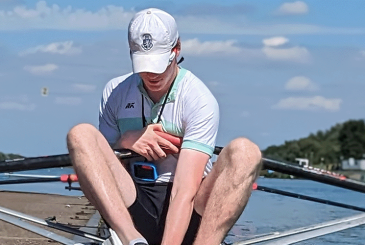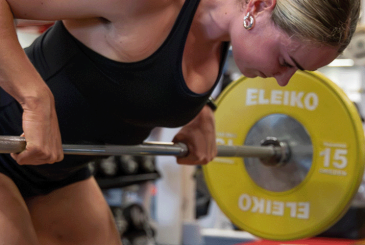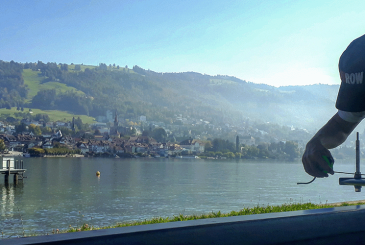Nick Baker took over from Tom Dyson early in 2022 as Paralympic Head Coach of the GB Rowing Team. He spoke to Martin Gough about the challenges of building his own culture with just over two years until the start of the next Games in Paris
Having coached the Paralympic Team since 2013, Baker brings immense wealth of knowledge and experience to his new job. Nevertheless, he’s acutely aware that Dyson is a hard act to follow; under his leadership, the team won six of the 12 gold medals available at the last three Paralympic Games.
So Baker views taking the helm of the GB Paralympic rowing squad is a akin to following Alex Ferguson as manager of Manchester United.
“I’m a relatively cool cookie,” he says, “but the one bit of pressure I am aware of is that I’ve taken on a programme that’s been successful for such a long time that there is pressure to keep it going.”
Unlike Alex Ferguson’s short-lived successor though, Baker already has an excellent track record. Having rowed as a junior for Great Britain for three years, he coached the double and single sculls to two gold medals and a bronze at Rio in 2016 then led the mixed coxed four to gold at Tokyo in 2021.
The two men formed a strong coaching team, allying what Baker called his “fire and brimstone” approach, with Dyson’s attention to detail in data and infrastructure.
“The step into the head coach role has been a healthy shock to the system”
Now Dyson has taken those strengths to a new role as Head of Olympic and Paralympic Performance Delivery – dealing with short- and long-term logistics for the whole of the GB Rowing Team – although Baker still knocks on his door occasionally for a chat.
“When I first started coaching, I would probably say I had a natural talent to coach boats and make them go fast but it was all done by gut-feel, tacit knowledge. I looked at a boat and understood it,” Baker says.
“The step into the head coach role has been a healthy shock to the system: the much longer term strategic vision, the planning and programming, all the things that come with people’s lives, the emergencies that you have to manage.
“The huge amount of time it takes on top of the daily coaching has been interesting. I’ve developed even greater respect for what Tom did over all those years.”
Baker lists three areas where he will judge success at the end of this season, the first of a shortened three-year Paralympiad leading up to Paris 2024. Those are: results in context, talent identification and forming a team culture.
Early season racing
Results have come straight away. The squad returned from the Gavirate Regatta in Italy in mid May with the champion’s trophy for top-performing nation after all five GB boats won medals.
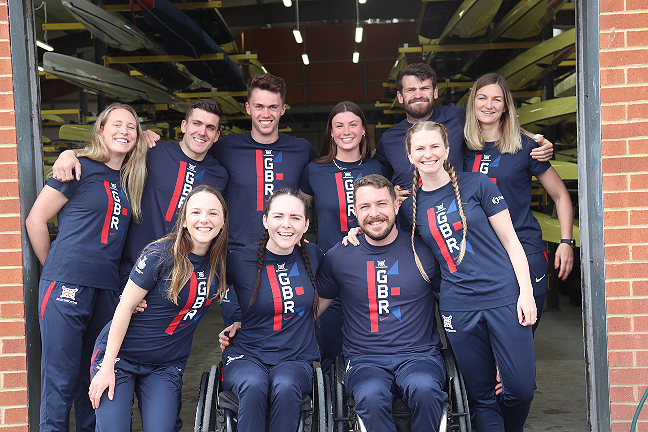
That included silver on both days for Annie Caddick and Daniel Powell in the PR3 double scull, which will be a new event at the Paris 2024 Paralympics.
The first World Cup in Belgrade in late May saw the PR3 mixed four extend their unbeaten run to 12 years – with two new faces on board this year in Frankie Allen and Ed Fuller – while PR1 single scullers Benjamin Pritchard and Callum Russell finished second and third. Lauren Rowles also won gold in the PR2 women’s single.
“The whole of May was been pretty full-on but really fun. We’ve got an incredible new group now,” says Baker.
“We’ve got a few new faces who have just brought all kinds of different pieces to the puzzle”
“One of the biggest helping hands for me is that I’ve had a really experienced group of athletes stay on after Tokyo. I’ve got athletes there I can lean on and trust to take on some of the workload.
“As you would expect, when you give people that level of autonomy and responsibility, they step on again.
“We’ve got a few new faces who have just brought all kinds of different pieces to the puzzle that we perhaps didn’t have before. The team dynamic is almost faultless; they all look after each other really well.”
Talent identification
In terms of talent identification there are two large challenges. The team want to find a women’s single sculler – the slot in the team that has been vacant since Rachel Morris retired after winning in Rio.
They also explored whether a new crew-mate could be found for Lauren Rowles, who has been left without a male PR2 partner after Laurence Whiteley’s decision to step down split up the double Olympic champion double scull.
“It was quite hard for Lauren when she found out but, being Lauren, within 24 hours she had sent me four [possible] names,” says Baker.
“She’s a world-leading athlete in that class and we’re going to put as much effort as we can into finding someone to get her to that Paris start line. The next six to eight months is pretty critical to have enough time.”
The new athletes in the PR3 crews – the lowest level of the three disability classes – highlights the work of the team around Baker, including new talent ID coach Rob Cree and performance development coach James Loveday.
“Whereas when we started in 2008 you would probably get people to medals within two years, we now accept that it’s a four-to-six-year journey,” says Baker.
“One of the uncomfortable things in Paralympic sport is that you have to find the right people, right on the minimal disability criteria lines.
“The search for that often goes into the rowing clubs. For PR3, the disabilities are so minimal that people barely even notice themselves if they’ve got something that might classify.”
Building a healthy team culture
When Baker relates his proudest moments as a coach, he gives an insight into the sort of team culture he is looking to build, with individuals going the extra mile for each other and building trust as a result.
“To produce results, you end up getting entwined with someone else’s life”
During the years leading up to Rio 2016 he coached Rowles, who has recently talked quite openly about her battles with mental health. Her father left home during the 2016 season, when she was just 18.
He also worked with Tom Aggar, who was Paralympic champion in 2008, but missed out on a medal on home water at London 2012 and had made a tough decision to row on.
“There are a couple of photos from Rio that say more to me than they will anyone else,” says Baker.
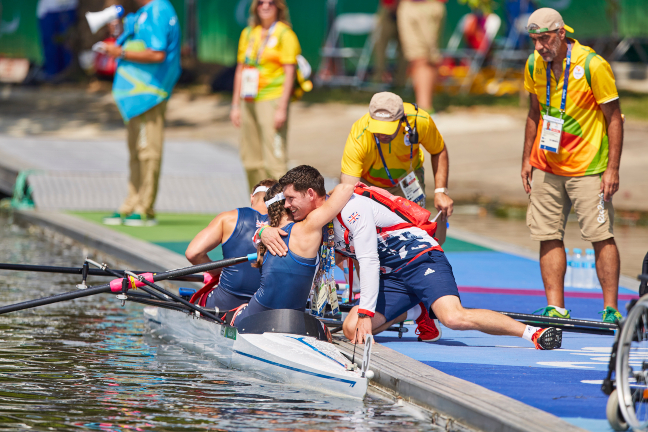
“There’s one where I have my arms around Lauren, with the boat on the pontoon and they’re just about to get their medals. Knowing what Lauren went through to get to that point, I almost completely forgot she had won the gold medal.
“There’s a picture of Tom Aggar crossing the line, having got the bronze medal in Rio. He’s just looking to the sky screaming with his arms aloft.
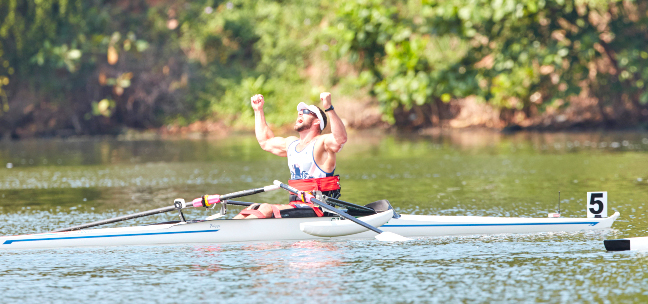
“The sport had moved on so much between 2012 and ’16 and all Tom wanted to do was leave the sport on his terms with his best performance. He didn’t care where that put him.”
Working together at elite level, Baker says, athlete and coach form a unique bond.
He explains: “To produce results, you end up getting entwined with someone else’s life. You end up being a bit of a counsellor, looking after them as a person and the coaching isn’t the most important bit.
“All of that feeds into that trust, so when you say things and you need them to follow you they will follow you.”
Those experiences of desperately tough depths followed by incredible highs were repeated in Tokyo last summer, after an 18-month battle to train and perform during the Covid pandemic.
“If you look at all the teams, everyone got to Tokyo completely and utterly burnt out. For me it became the Games of Resilience and it was the people who were able to dig that little bit further who came out on top,” says Baker.
“The whole experience has left me marginally conflicted because, yes, we achieved those results but the cost at which they were achieved was quite high. I don’t have a solution for that.
“I’m still glad we did it and the athletes got those results, but it took more than I’ve ever seen from everyone.”
Baker feels it will take at least until the end of this year for the coaches and athletes to be fully recovered, but he is fully aware that elite sport never stops.
Rounding off the racing season
The team are in the middle of the biggest racing season they have ever done.
After Gavirate and Belgrade the Para Squad’s next racing was at the invitation Para-Row to Paris Regatta in early July, a new Para-only event providing two separate mini-regattas at the Vaires-sur-Marne Nautical Stadium, venue for the 2024 Olympics and Paralympics. Notable amongst their haul of five golds, one silver and two bronze medals was Benjamin Pritchard’s defeat of the Ukrainian sculler Roman Polyanski on both days – the first time he’d beaten the double Paralympic champion. One the second day, Lauren Rowles, still in the PR2 single scull, found herself without opposition so raced alongside the men’s event and beat all five scullers by clear water.
Next week, it’s on to the European Championships in Munich, before the main focus of the year at the World Championships in Racice in the Czech Republic, in late September.
But as they continue to put in the hard work with their new head coach, there is already a sense that things are in the right place.
Baker says: “It’s a genuine pleasure to coach the group this year.
“Nothing is taken for granted and because there is that sense of thanks amongst the group for small daily tasks, everyone has pushed on to give that little bit more.”
Photos: Simon Way


